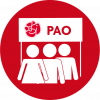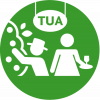The annual report
What the annual report covers
The annual report consists of a descriptive report and a financial report. It is to be handed in on February 1st.Why report?
Reporting on the operation should be viewed as giving feedback to the participants in the operation, the target group, donor organisations and Swedish taxpayers.
At the same time, reporting is also intended to help ensure that you develop as an organisation and have the tools you need to continue the operation without the support of the Swedish organisation.
Deadline
The final day for submitting the annual report is 1st of February for the partner organisations. That’s when the local partner organisation submits its report to the Swedish partner organisation (or to the Palme Center if you do not have one). The Swedish partner organisation/the Palme Center then has a month to complete the narrative section and the financial report, and to perform the audit.
The Olof Palme International Center recommends that the Swedish working group and the local partner organisation write the report together where possible.
The annual report consists of two parts
A narrative/descriptive report
This centres on the approved application and the result framework. The narrative report presents information about the application goals and intermediate objectives, if any. Your project/operation is a part of the overarching programme and you therefore also need to state which of the programme goals/outcome areas and indicators (expected changes) your project/operation has contributed to, and how.
Read more about the narrative report below.
An audited financial report
The narrative report
This is where you and your Swedish partner organisation (if you have one) describe what changes and results your operation or project has contributed to, and how.The purpose of the narrative report is to document changes, results and knowledge gained, and to provide the Olof Palme International Center with the information required for reporting to Sida.
The narrative report template must be completed electronically by the executing organisation in the implementation country, with support from the Swedish member organisation (where possible).
Documents to refer to in your report
Have the following documents available and use them when compiling the narrative report.
- The most recent approved version of the application for the period, including the budget, result framework – if any – and the most recently updated activity plan (if relevant).
- The result framework for the programme (appendix to the report template)
- Other relevant protocols, internal follow-up report, travel reports, minutes from dialogue meetings, evaluations and documents containing project information from this programme period
- Risk matrix and any other action plans
Read more about reporting changes and results in this excerpt from the Project Management Handbook

Do you want to become better at reporting?
The Olof Palme International Center often arranges training courses in reporting for our partner organisations. Contact your programme manager at the Palme Center for additional information. Upcoming courses will also be posted here on the website, under the respective Academies.
Evaluation and learning
Occasionally, there may be cause to perform a more comprehensive evaluation of the working relationship, over and above the regular follow-up and annual reporting.This evaluation can be performed internally or by an independent, external assessor. An evaluation need not be performed at any specific time. It can be carried out while the operation is under way, on conclusion of the operation or several years later.
When are evaluations needed?
The Palme Center conducts evaluations for several reasons, but first and foremost to learn from experiences from the operation with a view to improving the international development work.
Evaluations can be carried out on the initiative of any of the partners, of the Palme Center or of Sida, and they are usually conducted with the assistance of an independent, external assessor. The ambition of the Palme Center is for programme managers, together with the member organisations and partner organisations, to be involved in formulating questions, to hold views on the choice of methods and to participate in data collection and analysis. Such participating evaluations are recommended to reinforce learning within the organisations.
How to conduct an evaluation
The Palme Center has prepared a set of evaluation instructions that describe in detail how an evaluation can be conducted. Contact your programme manager for additional information.
One important aspect is to report on the learning you gained from the operation and how this will influence your future work as organisations. Take time in the working groups to reflect on your partnership, transparency, division of responsibility and efficiency during the year.
Reporting when a collaboration draws to a close
At the end of a multi-year contractual period, the narrative report template also contains questions concerning the entire contractual period.Project conclusion and local take-over
The phase-out of the working relationship – which the organisations should start discussing as early as when planning the operation – is an important partnership issue. A responsible phase-out makes a strong contribution to sustainable results and longevity in the partner organisation’s operation planning.
The operation is intended to contribute to lasting changes for target groups, and to help the partner organisation continue its work. The operation must naturally be targeted at helping the partner organisation to develop and acquire the tools to continue its work as a player for change in the long term, with or without support from the Swedish organisation.
Before the working relationship is brought to a close, it is extremely important to work strategically so that the results become durable and the organisation is in a strong position when the financing is discontinued.
The activity plan for the final year should have resources set aside for specifically reinforcing sustainability and sustainability, both in the results for the target group and within the organisation. In many cases, this involves a plan for assuring financial sustainability.












